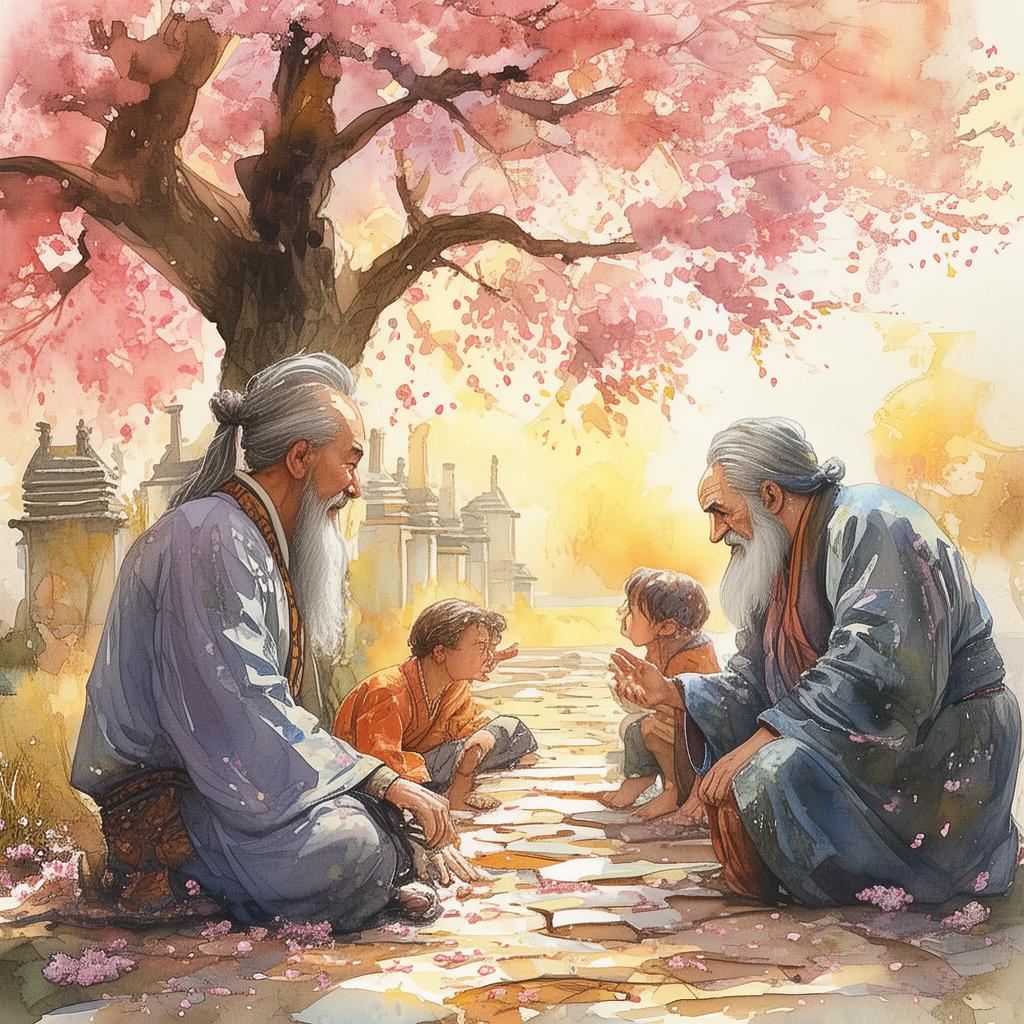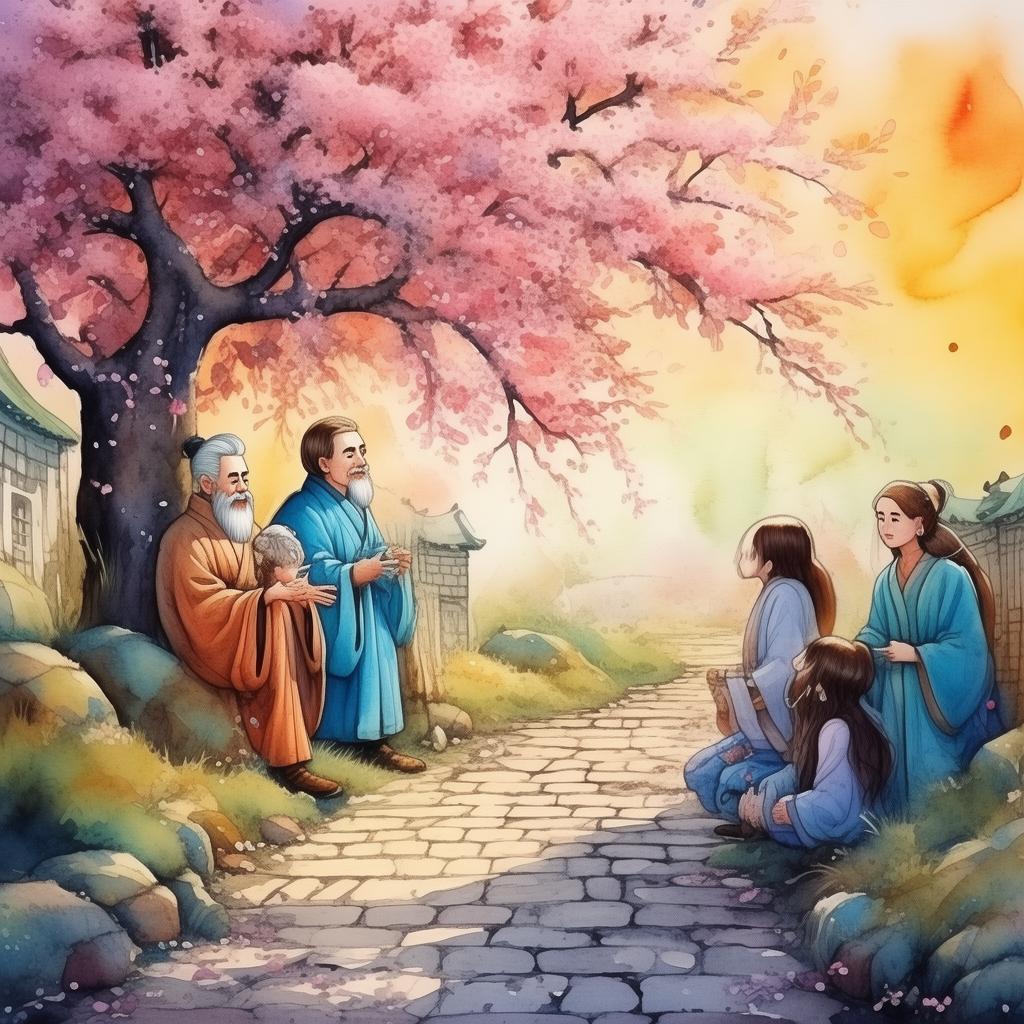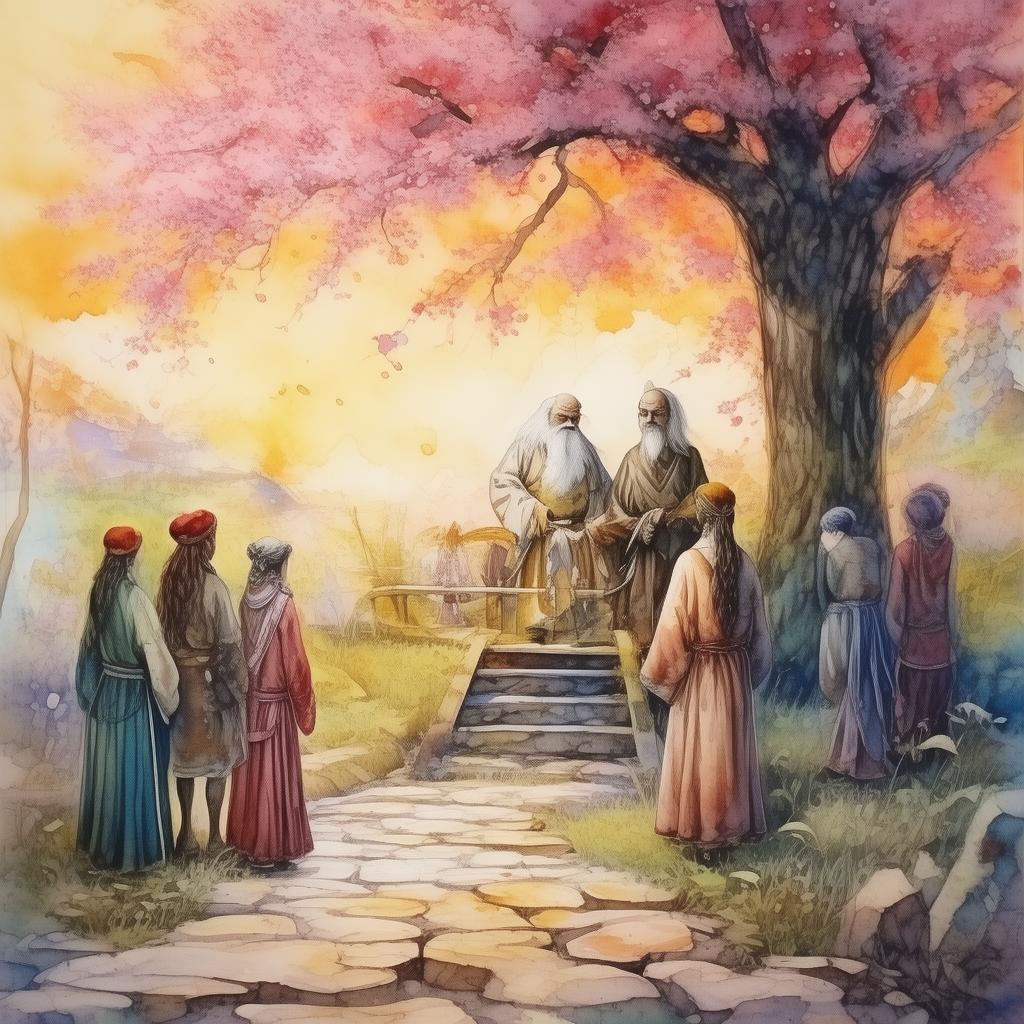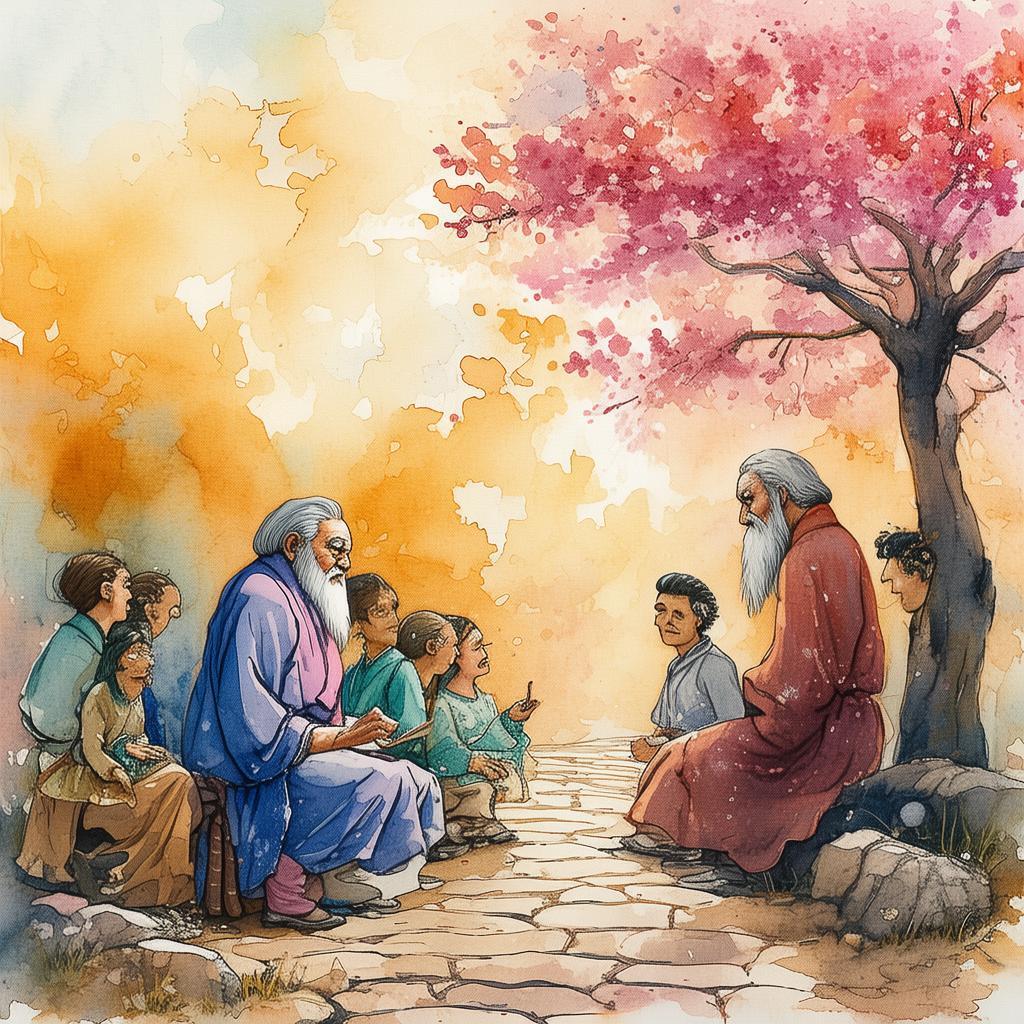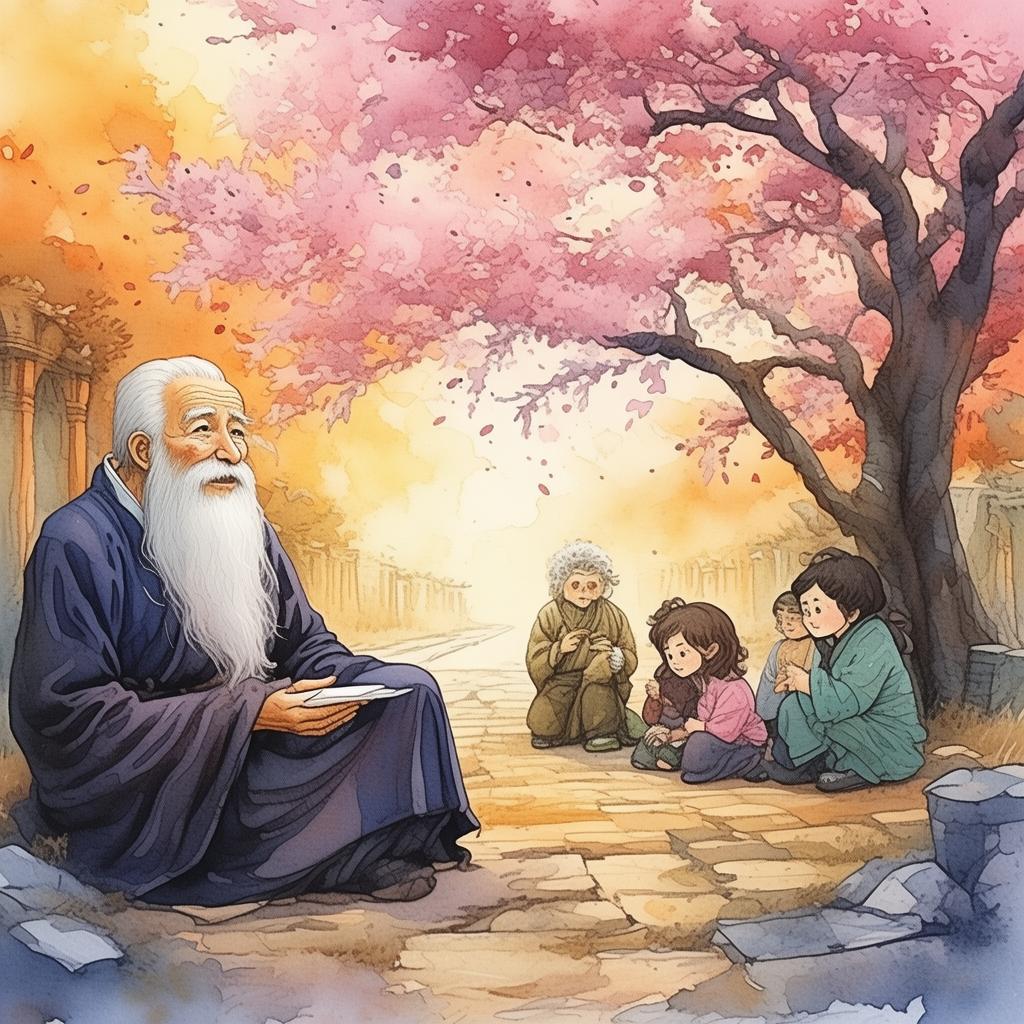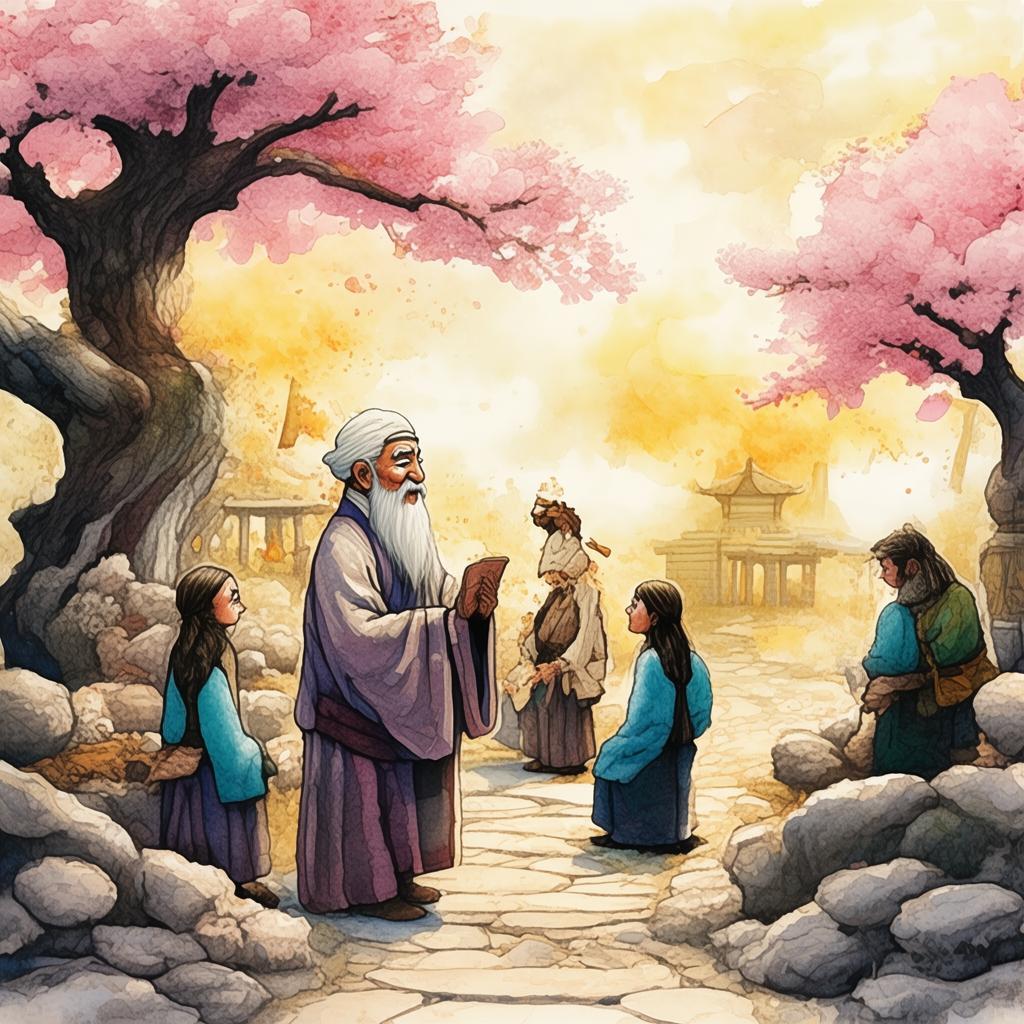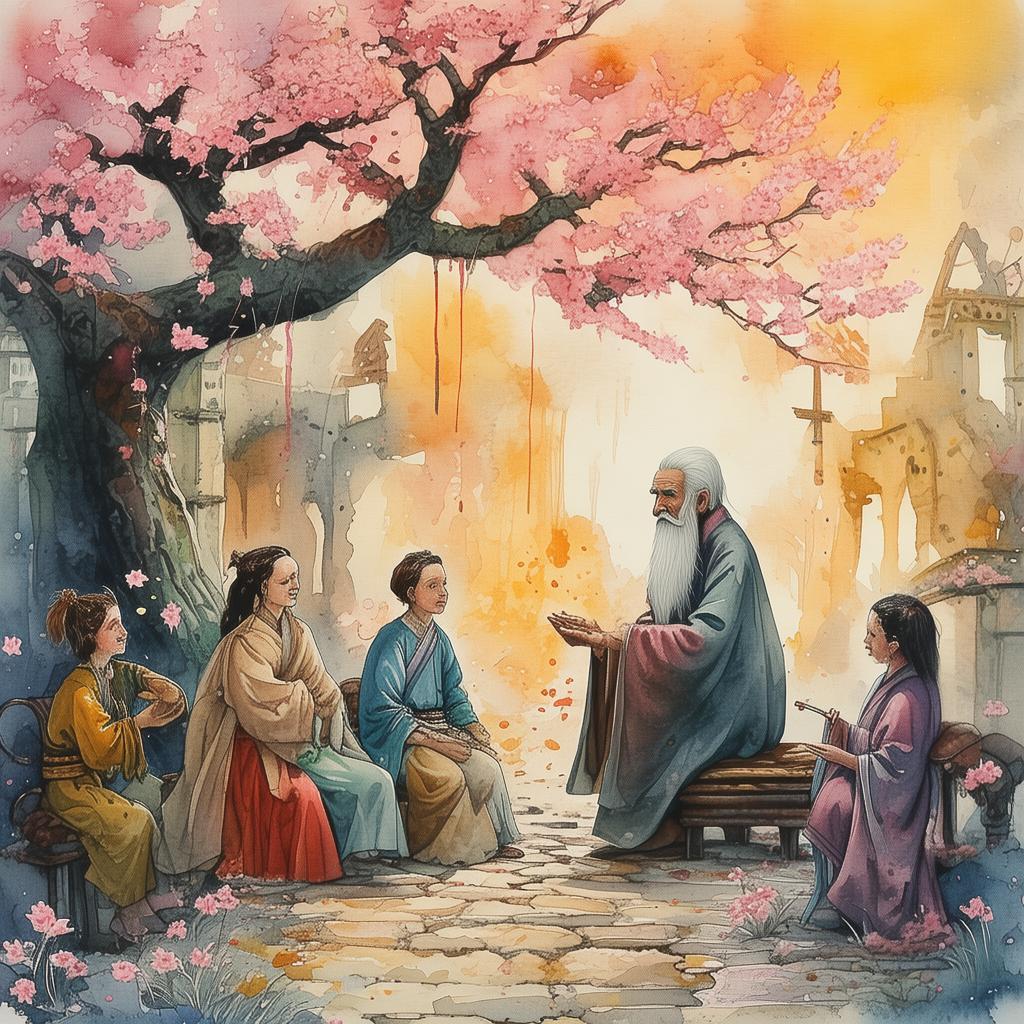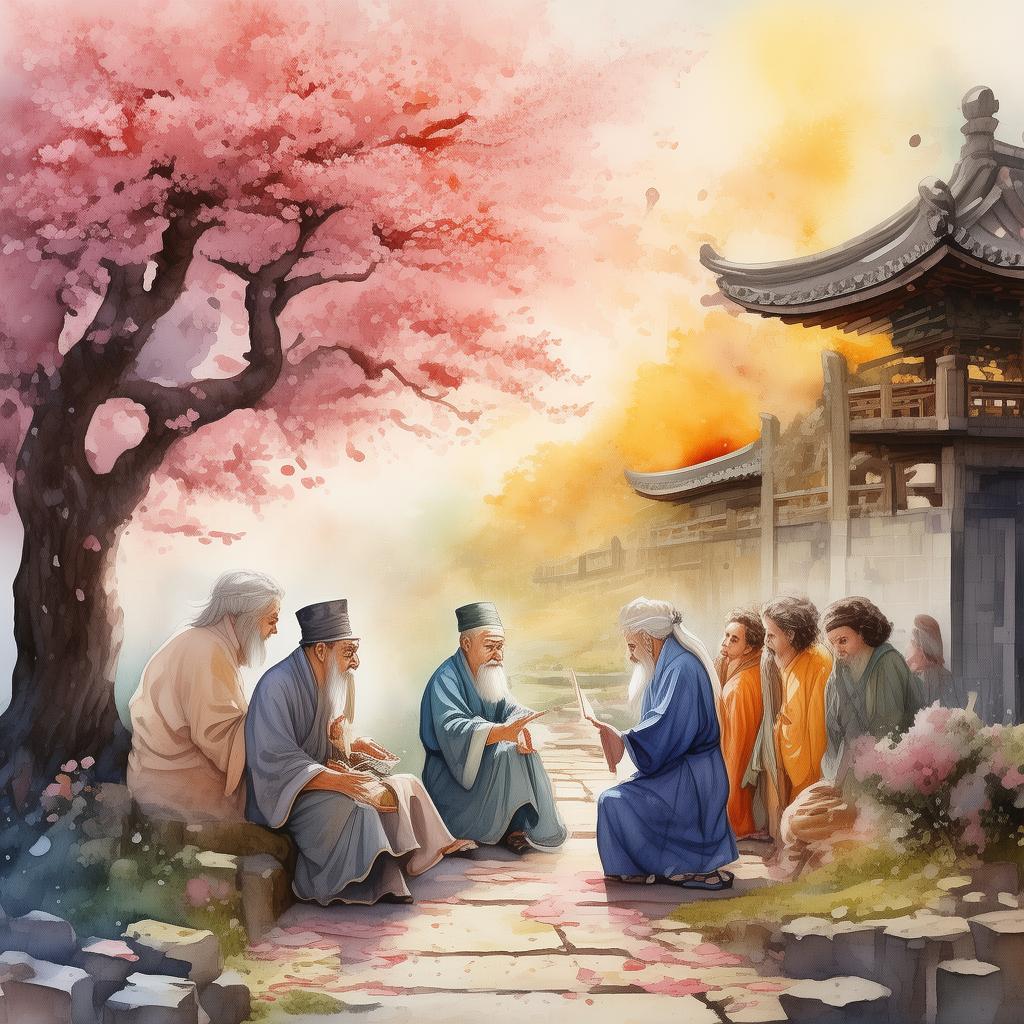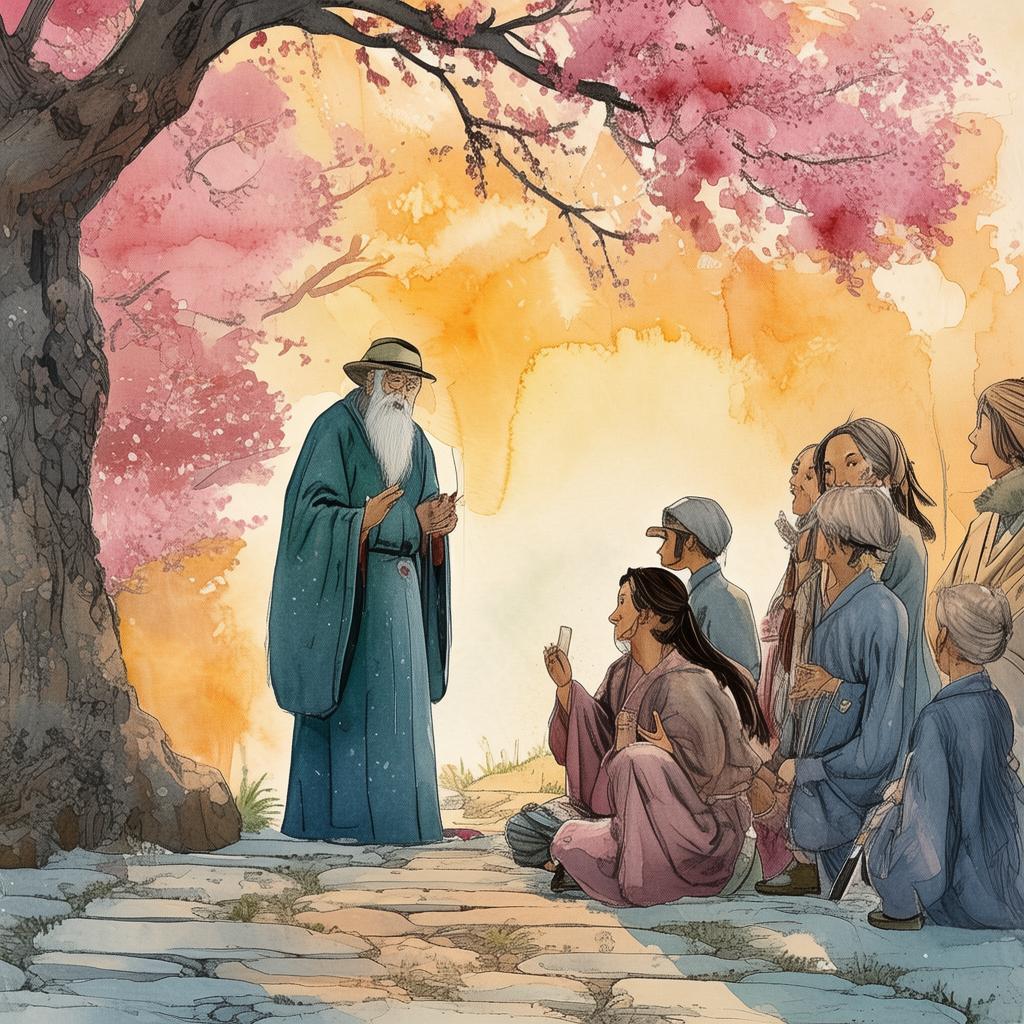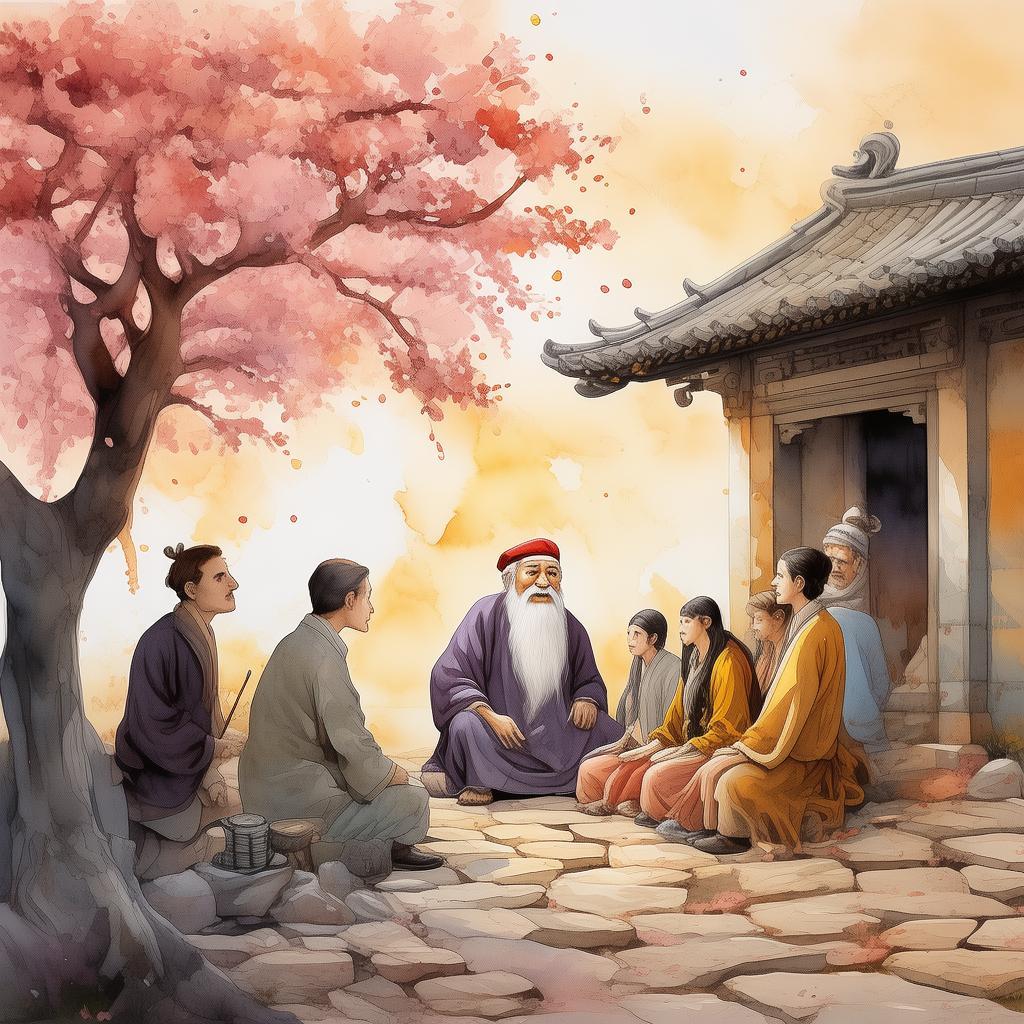The Paradox of the Silent Scribe
In the tranquil village of Lushu, nestled between rolling hills and a shimmering river, there stood a quaint little inn known as "The Whispering Quill." It was a place where tales and dreams were born, and the words of poets danced in the hearts of all who visited. Among these visitors was a mysterious poet, known only by the name "The Veiled Poet," whose works were enigmatic and cryptic, leaving readers to puzzle over their true meaning.
The innkeeper, known to all as "The Silent Scribe," was an eccentric individual whose silence spoke volumes. Despite his inability to share his thoughts, he had an uncanny talent for interpreting the intentions behind the words he transcribed. He lived by the belief that the essence of communication was not in the sounds one made, but in the silent intentions behind them.
One fateful evening, as the moon cast a silver glow over the village, a heated debate raged between The Veiled Poet and The Silent Scribe. The Veiled Poet, known for his intricate poems that often concealed profound truths, was preparing to unveil a new work. He approached The Silent Scribe with a sheaf of parchment in hand, his expression a mixture of anticipation and trepidation.
"Silent Scribe," he began, his voice low and husky, "I seek your help. These words are not meant for the ears but for the eyes. Can you interpret their silent intent?"
The Silent Scribe nodded, taking the parchment with a pair of steady hands. He had worked with The Veiled Poet before and understood the gravity of this moment. As he began to read the first line, he felt a chill run down his spine. The words were cryptic, a tapestry woven from the threads of his own thoughts, yet he couldn't discern the message they conveyed.
"I see the moon's reflection on the river, the night's silent companion," he said, his voice a whisper.
The Veiled Poet's eyes flickered with a mix of appreciation and concern. "You have captured the imagery, but not the essence. This line is a metaphor for life's hidden truths. It's about the journey we all take, unseen and unheard by others."
The Silent Scribe's brow furrowed as he continued to read, his mind racing to uncover the deeper meaning. He paused at the next line, a sudden realization dawning upon him.
"You describe the wind that whispers secrets to the leaves, the trees that listen to the wind's tale," he offered, his voice growing more confident.
The Veiled Poet smiled faintly, "Yes, that is part of the story, but it is not the entire truth. It's about the silent understanding between souls, the bond that transcends spoken words."
The more they delved into the poem, the more gaps emerged between their interpretations. Each word, each line, seemed to shift meaning, leaving both The Veiled Poet and The Silent Scribe at odds.
"Perhaps," The Veiled Poet pondered aloud, "the true essence of my words lies in the silent intentions you cannot grasp. Is that not the beauty of poetry? The endless possibilities?"
The Silent Scribe looked up, a hint of frustration in his eyes. "Then why not let me know your intentions? Why must we be left in the dark?"
The Veiled Poet's face softened. "I know my intentions are clear to you, Silent Scribe. They have always been. The problem is with your ability to hear them, not the message itself."
This revelation hit The Silent Scribe like a ton of bricks. He realized that he had been trying to decipher the words from a place of misunderstanding, assuming that what was written was the entire story. But perhaps the true beauty lay in the interpretation, the silent communication that only he, as the innkeeper, could provide.
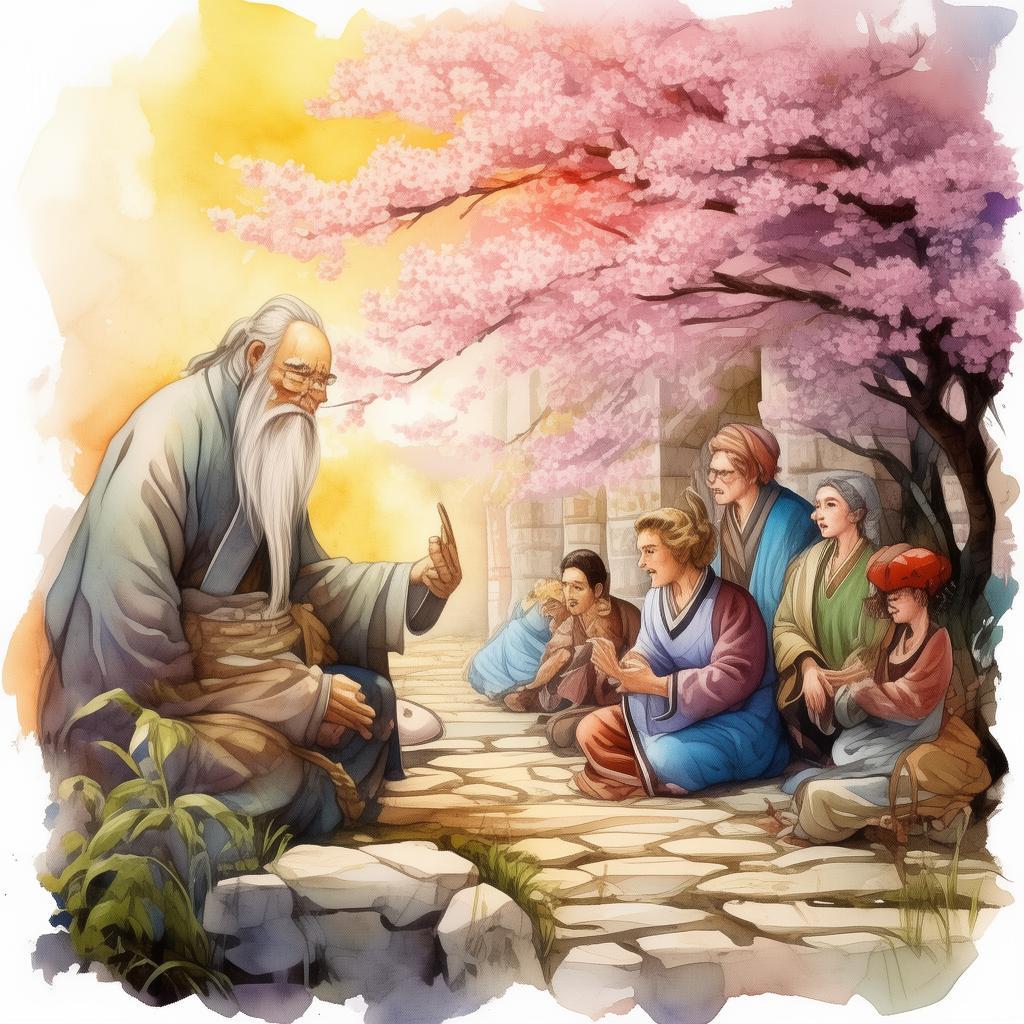
Over the next few days, The Veiled Poet and The Silent Scribe engaged in a silent exchange, their interpretations evolving with each reading. They began to see the value in each other's perspective, the importance of communication not just through words but through the silent intentions behind them.
Finally, the day arrived when The Veiled Poet revealed his new poem, this time in a public reading. The crowd listened intently, the words flowing like water. The Silent Scribe stood among them, his heart filled with a newfound appreciation for the power of language and the silent connection that lay between individuals.
As The Veiled Poet reached the final line, a hush fell over the crowd. "And in the silence that follows the storm, we find our truest voice."
The audience erupted into applause, the message of the poem having finally been heard. The Veiled Poet turned to The Silent Scribe, their eyes locking in mutual understanding. From that day on, their bond was unbreakable, their communication transcending words and embracing the silent essence of life's mysteries.
The Paradox of the Silent Scribe serves as a poignant reminder that sometimes, the most profound conversations occur not in the sounds we hear but in the silent intentions we feel. It is a tale that captures the essence of The Veiled Poet's work, one that resonates deeply with the human soul and the beauty of silent understanding.
✨ Original Statement ✨
All articles published on this website (including but not limited to text, images, videos, and other content) are original or authorized for reposting and are protected by relevant laws. Without the explicit written permission of this website, no individual or organization may copy, modify, repost, or use the content for commercial purposes.
If you need to quote or cooperate, please contact this site for authorization. We reserve the right to pursue legal responsibility for any unauthorized use.
Hereby declared.
